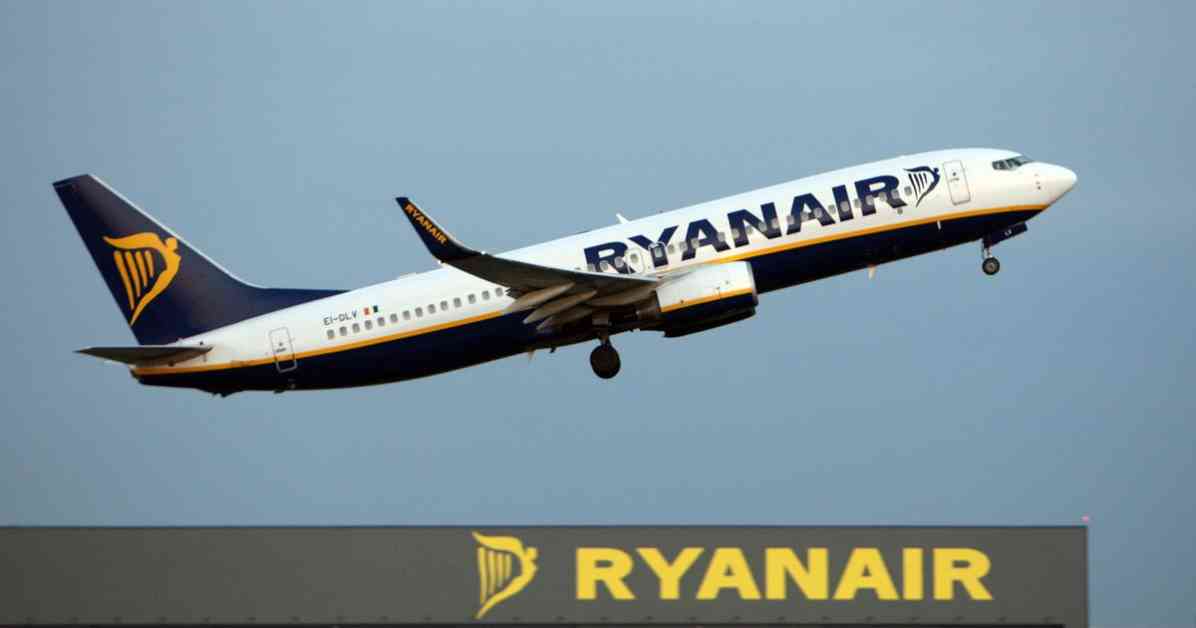Ryanair, one of Europe’s leading budget airlines, has issued a public apology to its passengers for the recent surge in flight delays affecting services to and from various European destinations. The airline cited European air traffic control staff shortages as the primary reason for these delays, which have been causing disruptions to their flight schedules. Despite efforts to mitigate the impact of these delays, Ryanair has expressed frustration at the ongoing challenges posed by the underperformance of air traffic control services.
Ryanair’s Apology and Explanation
In a statement released on Wednesday, August 14, Ryanair acknowledged the inconvenience caused by the excessive flight delays and attributed them to factors beyond their control. The airline’s spokesperson emphasized that the current situation was regrettable and unacceptable, particularly given the frequency of these delays. Ryanair expressed sympathy for the affected passengers and reassured them that they were working diligently to address the issue.
The airline pointed to European air traffic control services as the root cause of the delays, citing ongoing staff shortages as a significant contributing factor. Despite a 5% decrease in flight volumes compared to 2019 levels, Ryanair noted that air traffic control services continued to struggle with repeated staff shortages, leading to delays in a significant number of flights. On the day of the announcement, a staggering 18% of Ryanair’s first wave departures experienced delays, affecting over a hundred aircraft.
Challenges Facing European Air Traffic Control
The challenges faced by European air traffic control systems are multifaceted and complex, reflecting a combination of factors that have strained the efficiency of the system. According to ATC Network, the rapid recovery of air traffic following the pandemic, coupled with high seasonal demand and restricted airspace, has placed immense pressure on air traffic control services. Years of underinvestment in the sector have exacerbated the situation, leading to fatigue among staff and the stretching of system limits.
One of the key issues highlighted by ATC Network is the shortage of air traffic control officers (ATCOs) and other essential staff within the European air traffic control system. The lengthy training process for ATCOs, which typically takes around three years to complete, has made it challenging to address the staffing shortages promptly. Additionally, a lack of sufficient applications for these roles has further compounded the problem, creating a shortfall in qualified personnel to meet the growing demands of the aviation industry.
Ryanair’s Ongoing Criticism of European ATC
Ryanair’s frustration with the performance of European air traffic control services is not a new development. The airline has been vocal in its criticism of the system, attributing delays to air traffic control issues on numerous occasions. In a notable incident on June 27, over 30% of Ryanair’s 3,500 flights were affected by delays, prompting the airline to raise concerns about the impact of these disruptions on its operations and passengers.
Despite its efforts to work with European air traffic control authorities to address the underlying issues, Ryanair continues to face challenges related to flight delays. The airline’s commitment to providing reliable and punctual services to its customers remains unwavering, but the persistent shortcomings in air traffic control services have tested their ability to deliver on this promise.
In conclusion, the recent wave of excessive flight delays experienced by Ryanair and other airlines operating in Europe underscores the critical need for investment and reform within the air traffic control sector. As the aviation industry continues to recover from the impact of the pandemic, addressing staffing shortages, improving system efficiency, and enhancing coordination among air traffic control services will be essential to ensuring the smooth and timely operation of flights. Ryanair’s public apology serves as a reminder of the challenges faced by airlines and passengers alike in navigating the complexities of air travel in today’s global landscape.




















